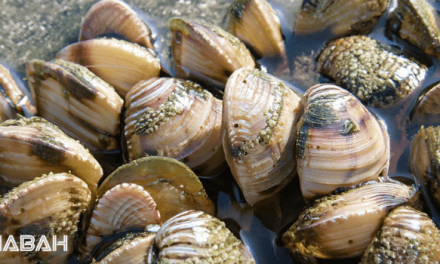As a food enthusiast and a firm believer in the importance of halal dietary choices, I embarked on a fascinating journey to uncover the halal status of turtle meat. In this comprehensive guide, I will delve into the intricacies of halal certification, the religious perspectives surrounding consuming exotic meats, and provide a definitive answer to whether turtle meat can be enjoyed with confidence by those adhering to halal principles.
Examining the Evidence on Whether Turtle is Halal
Islam provides detailed laws and guidance on what foods are permissible (halal) and prohibited (haram) for Muslims to consume. One area of debate among Islamic scholars is whether turtle meat is halal or haram. This article examines the evidence and arguments on both sides of this issue.
Overview of Halal Laws
-
The Quran specifies forbidden foods such as pork, blood, carrion:
Forbidden to you (for food) are: dead meat, blood, the flesh of swine, and that on which hath been invoked the name of other than Allah. [Quran 5:3]
-
Permitted are animals slaughtered according to Islamic method:
Eat of that over which the name of Allah has been mentioned. [Quran 6:118]
-
Seafood is generally halal according to most schools of thought
The Turtle Debate
- Turtles live both on land and in the sea, causing confusion over how to classify them
- There is lack of definitive guidance on turtle in the Quran and authentic hadiths
- Opinions are split among scholars about turtle being halal or haram
This article will examine the evidence and arguments on both sides of this debate.
Reasons Why Some Consider Turtle Haram
Some Islamic scholars and schools of jurisprudence prohibit the consumption of turtle meat due to the following reasons:
-
Turtles spend time both on land and in the sea. Their amphibious nature creates uncertainty about whether to classify them as land animals or sea creatures:
Turtles move both on the land and in the sea. They are thus of a dual nature in their mode of living. Hence, the Fuqaha (jurists) have differed regarding their hukm (ruling).
-
Land animals must be slaughtered according to Islamic rites to be considered halal. This cannot be done easily for turtles:
Animals that live on land must be slaughtered according to shariah in order to become halal. Turtles spend most of their lives in the water, making it difficult to slaughter them properly.
-
Eating turtle may be haram out of precaution, similar to amphibians:
It is better to observe precaution and abstain from the meat of turtle… just as precaution suggests abstinence from eating the meat of frogs and crocodiles.
Reasons Why Others Consider Turtle Halal
On the other hand, some scholars and interpretations of Islamic law allow the consumption of turtle meat based on the following evidence:
-
Turtles spend the majority of their lives in the ocean, so they can be classified as sea creatures:
Since turtles spend most of their natural lives in the sea, the Maliki school of thought in Sunni Islam declared all types of seafood to be halal.
-
There is no clear prohibition of turtles in the Quran or authentic hadiths:
There is no clear prohibition of turtles in the Qur’ān or sunnah. Though there are some unauthentic narrations concerning turtles, they do not amount to a shariah prohibition.
-
The general principle is permissibility of seafood:
The basic principle regarding fish and seafood is that they are all permissible, because Allah says: “Lawful to you is game from the sea.”
Evidence from the Quran and Hadith
There is a lack of definitive guidance on eating turtle in the key Islamic texts:
-
The Quran does not directly prohibit turtle meat, but only specifies forbidden categories like pork, blood, etc.
-
In the hadith literature:
-
There is no authentic narration clearly prohibiting turtle
-
One hadith directly allowing turtle is considered weak:
There is a weak hadith reported from Ibn Abbas that the Messenger of Allah (peace be upon him) ate turtle. However, this hadith is extremely weak, so much so that it is considered mawdu’ (fabricated).
-
Other narrations prohibiting turtle are also weak according to analysis:
Upon close analysis of these narrations it becomes evident that they are either extremely weak, inconsistent or not relevant.
-
-
General permissibility of sea creatures is supported in texts:
Anything from the sea is halal to eat for Muslims. This general ruling would include turtle.
Contemporary Debate and Rulings
Modern Islamic scholars, institutions and countries have varying perspectives on the permissibility of eating turtle:
-
Some prominent scholars like Yusuf al-Qaradawi prohibit it:
Contemporary scholar Yusuf al-Qaradawi is of the view that turtles should not be eaten.
-
Others like the ECFR (European Council for Fatwa and Research) allow it:
The ECFR passed a fatwa allowing the consumption of turtles so long as they are considered aquatic animals.
-
Turtle is permitted in countries like Malaysia:
In Malaysia, the National Fatwa Council have permitted the consumption of sea turtle.
-
But prohibited in others like Saudi Arabia:
The Standing Committee for Issuing Fatwas in Saudi Arabia has prohibited eating turtles.
-
Some regions depend on specific school of thought, like Hanafi view in South Asia.
Is Turtle Halal – FAQ
Yes, turtle meat is considered halal and permissible to eat in Islam.
Can Muslims consume turtle meat?
Yes, according to Islamic law, Muslims are allowed to eat turtle meat as it is halal.
Is it halal to eat sea turtles?
Yes, sea turtles are considered halal and permissible to eat for Muslims.
What is the halal status of turtles?
Turtles are considered halal, and their meat can be consumed by Muslims.
Are turtles and tortoises halal?
Yes, both turtles and tortoises are considered halal and permissible to eat in Islam.
Can turtles be slaughtered in a halal manner?
Yes, turtles can be slaughtered in a halal manner for their meat to be considered halal.
What does the Quran say about the halal status of turtles?
The Quran does not specifically mention turtles, but Islamic scholars have determined that turtles are considered halal based on the principles of Islamic law.
Are turtles and reptiles in general halal or haram for Muslims?
Turtles and reptiles, including turtles and tortoises, are considered halal and permissible for Muslims to consume.
Can Muslims eat turtle meat according to the Hanafi school of thought?
Yes, according to the Hanafi school of thought, it is permissible for Muslims to eat turtle meat.
What does the hadith say about the halal status of turtles?
There are no specific hadiths addressing turtles directly, but Islamic scholars have concluded that turtles are halal based on general principles of permissible food.
Conclusion
In summary, there are good faith arguments and evidence on both sides of the turtle permissibility debate:
-
Those prohibiting turtle make reasonable claims about:
- The amphibious nature of turtles
- Difficulty in slaughtering turtles properly
- Taking precaution regarding doubtful things
-
Those allowing turtle also have valid perspectives based on:
- Turtles spending most time in the sea
- Lack of clear prohibition in Quran and authentic hadith
- General permissibility of sea creatures
-
There are opinions and rulings supporting both views within scholarship across time and regions
-
In the end, Muslims who avoid turtle out of precaution are making a reasonable choice
-
Those who permit turtle also have credible foundations for their position
-
Further discourse and working towards ijma (consensus) on this issue would be beneficial
-
Individuals should follow local scholarly guidance on such disputed matters





